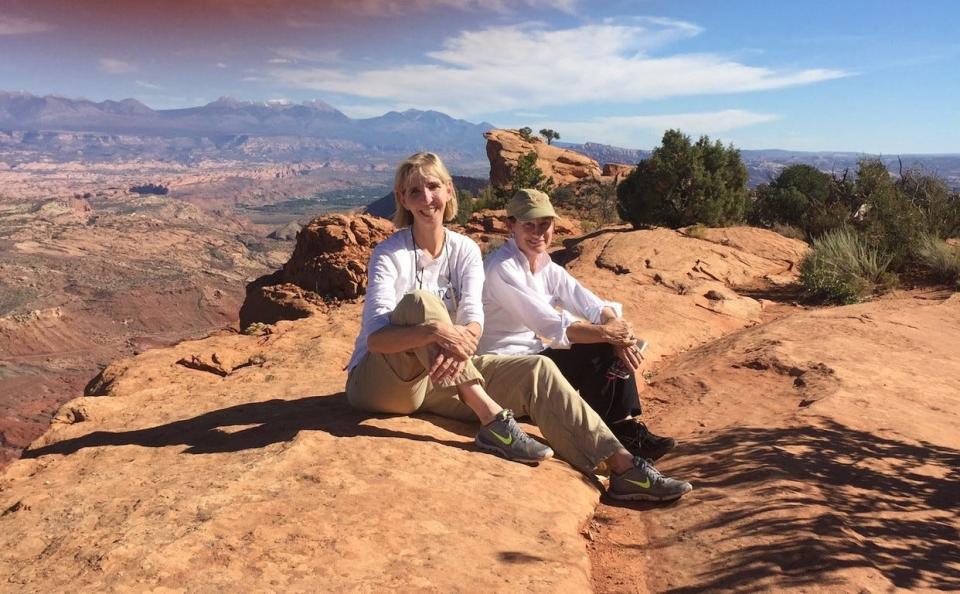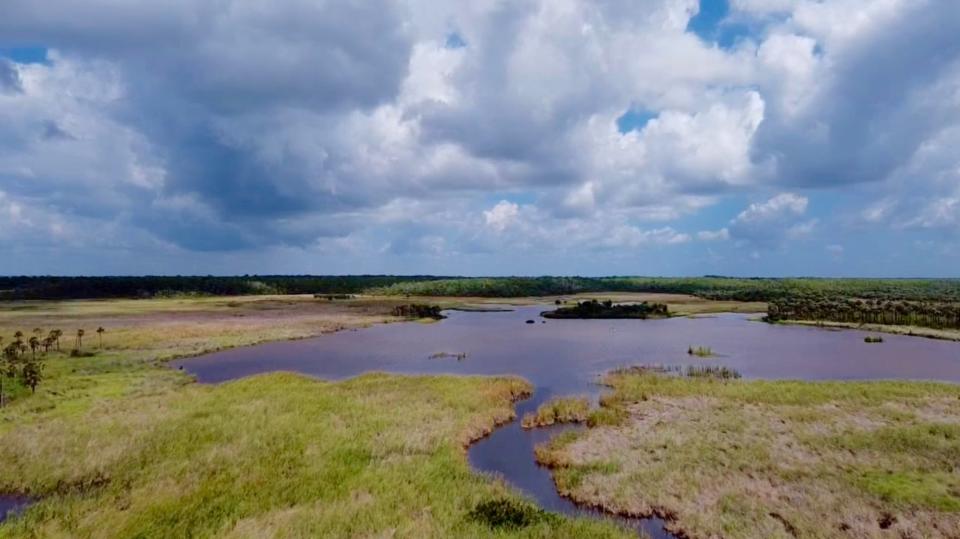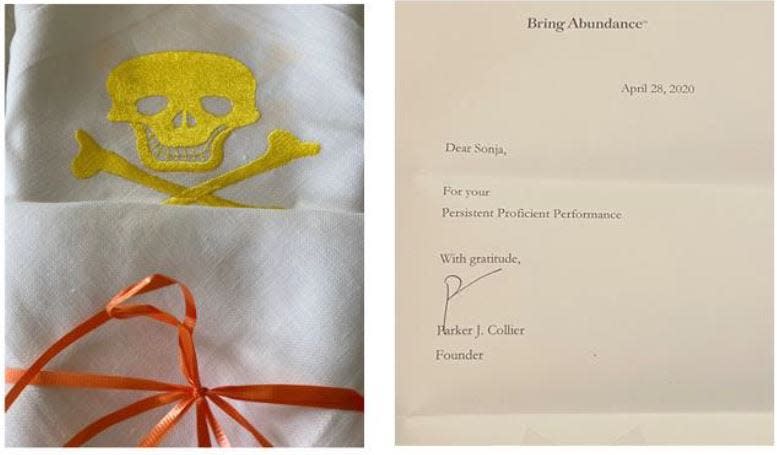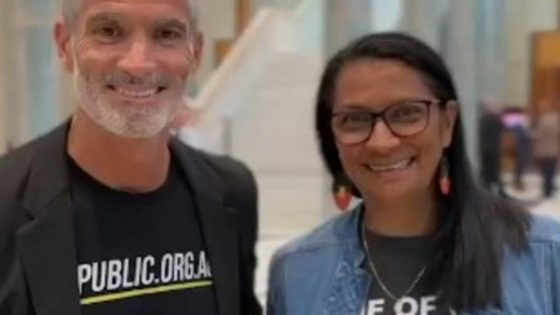Florida was duped into buying conservation land tainted with creosote, a toxic wood preservative linked to cancer and birth defects in a deal hailed as an environmental win, says a lawsuit unsealed in federal court last month.
The Colliers, through a spokesman, deny the allegations, but whistleblower Sonja Eddings Brown, who worked closely with matriarch Parker Collier for more than a decade before she was fired, says the powerful, wealthy family helped engineer the nearly $30 million deal, but hid the fact that some of the Everglades land was dangerously polluted.

The claims are part of a larger suit seeking damages from Collier for Brown’s “loss of income, business opportunity, and goodwill, as well as emotional distress and reputational harm,” and she demands a jury trial. The 45-page complaint occasionally veers into only-in-Florida territory, including the gift of a napkin embroidered with skull-and-crossbones, the sale of a Lamborghini, death threats and Collier’s use of a numerologist.
The Colliers have categorically denied Brown’s allegations through a spokesman, and an environmental lobbyist who helped put the deal together says Brown’s claims are baseless.
But the issue at the heart of it is clear, Brown alleges: the Colliers, who once owned more than a million Southwest Florida acres, got richer by unloading tainted land onto taxpayers while relieving themselves of polluted property.
Once home to the C.J. Jones Lumber Co., the biggest steam milling operation in the Southeast, it was the processing heart of the logging juggernaut that chewed through pine flatwoods and cypress swamps in the early 20th Century, until it closed in 1957.
Though Jones had leased the land, the Colliers and their various business entities owned it.


‘A toxic source for hundreds of years’
Despite a 1990 agreement with the Florida Department of Environmental Regulation (now Protection) requiring the Colliers to clean it up and provide water to residents of nearby Jerome, a tiny hamlet of fewer than 50 people, “almost as soon as the Colliers inked the deal with the State of Florida … they stopped providing the residents the gallons of bottled water the Consent Decree required (so) Mrs. Collier and her family profited from the polluted land while leaving residents at risk of exposure to toxic chemicals in the water they drink, cook, and shower with,” according to the lawsuit.
The transaction that included the tainted land, Brown claims, was foisted on the state after a series of high-level meetings with then-President Trump, Florida Gov. Ron DeSantis and their respective teams. Because of Brown’s government relations expertise, Parker Collier tapped her to help with the deal.
“Mrs. Collier falsely told Brown that the creosote contamination, which she said had happened a long time ago, had been cleaned up. And despite knowing that Brown would be interacting with President Donald Trump and senior White House and campaign staff, as well as Governor Ron DeSantis and his senior team, regarding the acquisition, she told Brown not to discuss the creosote during her meetings,” according to the lawsuit.
Brown was fired in early 2020, before the sale was final, but the deal included the tainted land, the suit claims.


Green Heart of the Everglades No more threat of oil drilling on this 10,000-acre preserve near Everglades City
The contamination remains, Brown says, offering as evidence independent testing reviewed by physician James Dahlgren, “an expert who has studied toxic chemical exposure since 1973” that found creosote’s chemical signature in area well water.
Dahlgren says the findings mean “water from that well will produce adverse health effects for those using that water” and the results are “the tip of the iceberg reflecting likely widespread water contamination” that poses significant health risks. Dahlgren says the “water and soil around Jerome and Everglades City are contaminated and need to be remediated or it will be a toxic source for hundreds of years,” the suit claims.
Naples Daily News questions to the Florida Department of Environmental Protection about the deal were directed to the South Florida Water Management District, which took charge of the property’s vetting and purchase.
Suit’s allegations ‘just wrong,’ lobbyist says
In an email, spokesman Randy Smith wrote: “It is a long-established practice for the South Florida Water Management (District) to conduct a comprehensive environmental assessment of any real estate prior to its purchase, and this includes the purchase in Collier County known as the Green Heart of the Everglades. Assessments are performed as part of a standardized process to meet the District’s high-level of commitment to public safety, environmental stewardship, and good governance.”
After reviewing the lawsuit, Ernie Cox, a lobbyist for the environmental nonprofit WildLandscapes International, which negotiated the sale, said the land the legal challenge involves wasn’t part of the sale.
The allegations are “just wrong,” he said.
The sale involved land owned by two sides of the Collier family. On a map, Cox pointed to a small piece of property referenced in the lawsuit, east of State Road 29, showing it as outside of the acquisition’s boundaries.
WildLandscapes, he said, approached the Colliers about the sale of the property for conservation, not the other way around. The group saw it as a missing jewel, as it’s surrounded by other protected lands in the “middle of the Everglades.”
Cox also questions the character of the suit: “There is a whole lot of inaccuracies in that lawsuit,” he said. “It looks more like a contract dispute than a whistleblower lawsuit.”
He believes the adjacent property was “cleaned up years ago,” and it’s owned by the U.S. Department of Interior, which purchased it long ago, he said.
The Water Management District knew the site’s history, so it wasn’t “hidden” in any way, as claimed by Brown, Cox said.
“It looks like she’s making allegations that she was supposed to be paid for something,” he said. “That’s not something I know anything at all about.”
He insisted there was nothing toxic about the land sold to the water district, and that WildLandscapes did its homework.
“I’m really, really happy that we were able to get this property into public ownership,” Cox said. “I think it’s a great piece of conservation land. It’s got incredible natural resources on it.”
Area environmental nonprofits, including the Conservancy of Southwest Florida and the Everglades Foundation were not involved in the deal and declined to comment on Brown’s claims. “(This) is the first that we’ve heard of this. The claims in the suit are not issues that we have any insight or knowledge about, so we are not able to provide comments,” wrote Nicole Johnson, the Conservancy’s director of environmental policy, in an email.
The ‘new face’ of Collier Enterprises turns whistleblower
In her years with the Colliers, Brown had an up-close view of their activities, particularly those of Parker Collier, for whom she became a close confidante.
According to the suit, Brown was “on-call for a variety of projects and tasks related to Mrs. Collier’s personal and professional affairs. Brown would often attend meetings and local political events as Mrs. Collier’s representative and was even trusted by Mrs. Collier to supervise her contractors (and) frequently shared personal information regarding herself, the Collier family, her consultations with her numerologist, and her ambitious business and financial goals.”
The suit says Brown’s work included:
-
Managing certain philanthropic and community relationships for Parker Collier. “While attending events on Mrs. Collier’s behalf, Brown created relationships and secured business for Mrs. Collier’s business endeavors.”
-
Assisting with business opportunities for Collier family members, including evaluating an athletic contract for Mrs. Collier’s daughter and developing a website for (her husband) Miles Collier’s book.
-
Consulting on a marketing strategy for products from the Collier Vermont Farm
The suit alleges that “in March 2020, a month before Brown’s termination, the Colliers asked Brown to hold herself out as the ‘new face’ of Collier Enterprises, alongside Interim CEO Don Whyte.” Brown is quoted in the Naples Daily News about Rivergrass.
Also part of the complaint are Brown’s allegations of other Collier malfeasance, particularly involving the family’s work to secure government approval to develop some of their land into a series of “villages,” the largest of which is Rivergrass.
According to the suit, as she learned about what she saw as the company’s shady practices, Brown became worried her association with it would damage her own credibility and reputation.
The suit also alleges company corruption involving development approvals. Brown says she tried to question it, but she was ignored and lied to, which led to “loss of income, business opportunity, and goodwill, as well as emotional distress and reputational harm.”
The suit claims: “Concerned about the possible consequences of the questions and alleged corruption Brown had raised, as well as her fear that Brown would eventually learn the full truth about the creosote contamination, Mrs. Collier began to view Brown as an existential threat. As a result, she engineered her sudden termination at the peak of her responsibilities at Collier Enterprises.”
A Collier spokesperson denied Brown’s complaint: “This claim is without merit and completely baseless. We categorically refute all allegations made against us and will vigorously defend our position and reputation, utilizing the full extent of legal remedies available to us.”
The complaint was filed in U.S. District Court in Fort Myers.
This article originally appeared on Fort Myers News-Press: Whistleblower says Collier family sold 8.000 tainted acres to Florida
Source Agencies


